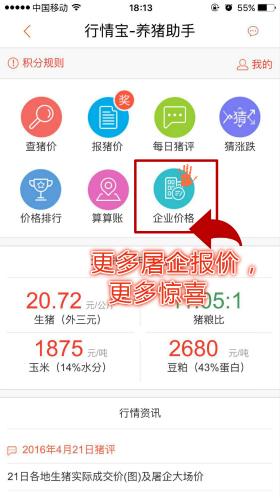Can I get back the land I transferred to someone else? What if the land is occupied by the village committee? Teach you how to defend your rights quickly.
In recent years, with the in-depth implementation of the central policy of "supporting and benefiting farmers", the broad masses of farmers are enthusiastic about agricultural production, followed by a large number of agriculture-related land contract cases. Today, I would like to share with you a few legal issues about land.
1, the mobile phone number ends with 7865 to listen to the friend's question: my land is forced to build roads by the village committee, and I can't grow it for 30 years. Once we have moved the land here for 30 years, the village committee does not give any compensation, and forcibly does not give the land. Excuse me, what should I do?

Chen Liang: lawyer of Beijing Yijia Law firm
First of all, if the road is to be built in the village, according to the normal procedure, it should be discussed and approved by the villagers' committee to solicit the opinions of the villagers. the village committee has no right to forcibly occupy the contracted land of the villagers.
If you encounter such a situation, you can sue the village committee on the grounds of damaging the right of household contracted management and asking for compensation.
2. The villagers signed a house sale and purchase contract ten years ago, agreeing that A will sell the house to B at a price of 43000 yuan. The two sides also agreed that "A will hand over the contracted land to B for farming, such as the higher authorities adjust the land in accordance with the policies of the higher authorities." Should the request for the resumption of his land be supported? "
The legal nature of A handing over the contracted land to B for farming should be that A subcontracts the land to B (if B does not belong to the collective economic organization where A belongs, it is leased), and the subcontract fee (rental fee) is zero. (the reason for this is that B has bought A's housing.) although the terms of the transfer contract of the land contractual management right stipulate that in the house sale contract, it is legal and effective as long as both parties express their true intention and do not violate the provisions of the law. According to the provisions of the contract Law, after the contract entered into by the two parties becomes effective, the two parties shall be bound by it and shall not terminate the contract arbitrarily without agreement or legal reasons.
How to understand the agreement between the two parties that "the superior adjusts the land in accordance with the superior policy"?
Practice shows that the system of contracted management right of rural land has been upgraded from policy to law so as to further stabilize the rural contractual relationship. And continue to give farmers preferential treatment in tax and other policies. After the second round of contracting, there is basically no re-contracting or adjustment of the land. It can be seen that there is no change in the national land policy that leads to the non-performance of the contract between An and B. In this sense, A's request for termination of the contract cannot be supported. However, because the subcontract fee is zero, according to Article 16 of the interpretation: "if a dispute arises because the contractor does not collect the transfer price or pays the fee to the other party, and the parties cannot reach an agreement on the change through consultation, and it is obviously unfair to continue to perform, the people's court may deal with it in accordance with the objective situation of the change and in accordance with the principle of fairness." Therefore, the people's court can appropriately increase the subcontract fee according to the objective facts. It should also be noted that if the contract between the two parties is carried out indefinitely, it is obviously unfair to A, because A will lose its right to secure its own life-land for a long time. The people's court may, according to the specific circumstances of the case, if the two parties have not agreed on the time limit for circulation in this case, then, in accordance with Article 17 of the interpretation, it shall deal with it with reference to Article 232 of the contract Law, that is, A may terminate the contract, but B shall be notified before a reasonable time limit.
3. After the villagers who were absent were given the land, they were contracted by the village committee to the third person for many years, and the third party paid the contract money and was spent by the village committee. Can the land contract signed by the village committee and a third party be supported by the request of the original land holder? Should the original land distributor compensate the third party for the loss of the land contracted by the third party?
The Rural Land contract Law further endows farmers with the nature of the real right of the contracted management right, and the contractor illegally resumes and adjusts the contracted land is an infringement on the legal real right, and the person of the land contractual management right can seek legal protection as the real right holder. No matter whether the infringer, that is, the contracting party has separately contracted the contracted land to others, the owner of the land contractual management right shall support the request for the return of the land. Article 6 of the interpretation of the Supreme Court has made more operational provisions on the handling of such disputes. "disputes arising from the illegal recovery or adjustment of the contracted land by the contracting party, or the recovery by the contracting party of the contracted land abandoned or abandoned by the contractor, shall be dealt with separately according to the unlisted circumstances: (1) if the contracting party fails to contract the contracted land separately, and the contractor requests the return of the contracted land, it shall be supported. (2) if the contracting party has separately contracted the contracted land to a third party, and the contractor takes the contracting party and the third party as the co-defendant, requests to confirm the invalidity of the contract signed, return the contracted land and compensate for losses, it shall be supported. However, in the case of abandonment or abandonment by the contractor, his claim for compensation for losses shall not be supported. If the third party mentioned in item (2) of the preceding paragraph requests the beneficiary to compensate for its reasonable investment in the contracted land, it shall be supported. " According to the provisions of this article, the contract signed between the contract issuer and the third party shall be confirmed to be invalid and invalid from the beginning because it violates the provisions of the Rural Land contract Law and infringes upon the rights and interests of the contractor. Therefore, the third party has not obtained the legal and effective right of land contractual management from the beginning. The provision for the protection of the contractor's loss in paragraph 1 (2) of this article shows that even if the land contractor has not cultivated the land for many years, his contractual management right has never been lost. In that case, the contractor did not infringe upon the contractual management right of the third party to plant the land. The loss claimed by the third party generally includes two aspects: one is the land income lost because the land is preempted by the contractor; the other is the reasonable input to the land. As discussed earlier, the third party has not obtained the right of contracted management of land from the beginning, and the contractor has not infringed upon the rights of the third party, so the third party's request for compensation for its losses cannot be supported. However, a third party may sue the developer in a separate case, requiring the developer to bear the liability for breach of contract. However, it should also be noted that while the "Land contract Law" and "interpretation" focus on the protection of the contractor's legal right to land contractual management, they do not turn a deaf ear to the legitimate rights and interests of the third party. Article 6 of the interpretation stipulates that the beneficiary shall compensate the third party for the reasonable investment in the land. If the land is returned to the contractor, the contractor becomes the receiver of the land input and shall compensate the input of the third party. The input of the third party includes not only the input of farming, such as ploughing, sowing and fertilization, but also the investment of improving land production capacity.
Source: China Rural Voice "case Theory", Rural Land contract Arbitration
Reporter: Xu Wen
Editor: Li Yunan
Editor: Bai Chen
Producer: Zhang Lei
The original works of China Village Voice are welcome to forward and reprint, but be sure to indicate the source: Wechat official account "China Village Voice", and keep the reprinted content presented separately and completely.
- Prev

Walnuts and wood are also crazy. From tens of millions to 20,000 tons, no one wants you to understand.
Walnuts and wood are also crazy. From tens of millions to 20,000 tons, no one wants you to understand.
- Next

On the 11th, pig prices are "stable" as a whole, and there are ups and downs everywhere!
On the 11th, pig prices are "stable" as a whole, and there are ups and downs everywhere!
Related
- A course of planting techniques and methods on how to grow carrots
- How to plant the latest tulips?
- Is it better to pick tea in the morning or in the afternoon? When is the best time for tea to be picked? what is the third or fifth tea?
- Launch Yuanxiao Happy combination Haocha + Tea Yuan healthy Taste
- Penghu Tourism "Fireworks 20 Parade with You"
- 2022 West Lake Happiness holds "Digital Revitalization Voucher" and draws iphone13 and laptop.
- Banqiao Fuzhou social houses are designed to change start-up combined with police elimination to create a safe and livable environment
- The convenient measure of "mechanical weeding" in Xinbei has been abused and the Agriculture Bureau has imposed heavy penalties on the illegal land consolidation.
- Changgeng University Joins Hands with Four Memory Factories to Rescue Memory Talent Shortage
- The list of Taiwan's top 100 MVP managers is listed by the Director-General of the Farmers' Association of Sanxia District.

